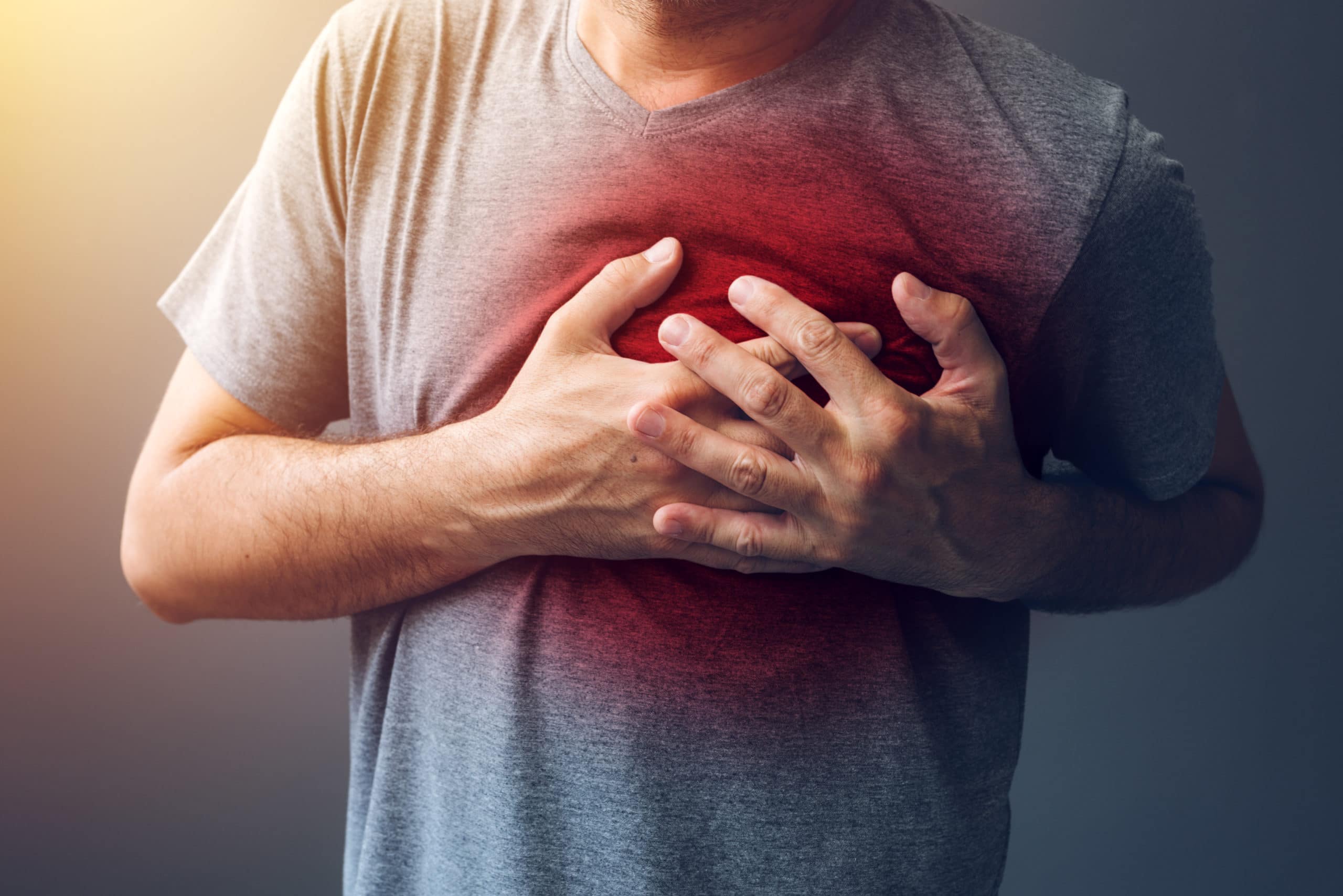Home » Health Education » Cardiovascular Wellness » The No. 1 Killer of Men in the U.S. is Largely Preventable

The No. 1 Killer of Men in the U.S. is Largely Preventable
Thousands of men die every year in the U.S. from causes like cancer, car accidents and even the flu. But none of these outpace the most deadly killer: cardiovascular disease. The truth is nearly a quarter (24.2 percent) of adult male deaths in 2017 were attributed to cardiovascular disease, according to the CDC. That ranks higher than cancer, unintentional injuries, stroke or diabetes. In fact, excluding cancer (21.9 percent), the percentage of deaths due to cardiovascular disease outweighs the next five causes combined.
These numbers are unnerving, and we have to make sure we are caring for ourselves and one another if we want to lower that percentage. The men in our lives are vital, not only because we love them, but because they have an important role in society—especially when it comes to impacting younger generations.
Dads Make a Difference
According to several studies, the active involvement of fathers (and father figures) can be the difference many children need in their lives to move them in a positive direction. Kids without attentive fathers are three times as likely to be involved with the juvenile justice system before the age of 18 than children who have involved fathers. They’re also two times more likely to drop out of school and four times more likely to live in poverty. Children with active fathers are much more likely to learn empathy and have a more holistic and balanced understanding of gender roles.
The statistics about the importance of dads, grandfathers and other actively engaged male role models are staggering. We need to make sure the men in our lives are healthy and taking care of themselves, especially when it comes to cardiovascular disease.
Nearly Half of U.S. Adults Have Cardiovascular Disease
Every 40 seconds, someone in the U.S. has a heart attack. Every 37 seconds, a person dies from cardiovascular disease. With statistics like these, it’s not entirely surprising that cardiovascular disease is the leading cause of death in American adults across nearly every race and ethnicity. Almost half of all adult Americans have some form of cardiovascular disease (including high blood pressure), so it is more important than ever to be aware of the signs and symptoms and take what measures we can to lower our risk of cardiac events.
The term “cardiovascular disease” refers to a group of heart conditions, but the most common in the U.S. is coronary artery disease (CAD), which decreases blood flow to the heart and can cause a heart attack. Though it can often be a “silent” disease—meaning symptoms can often go unnoticed—risk factors include high blood pressure, smoking, high cholesterol, obesity, diabetes and other unhealthy lifestyle choices.
The most common symptom for CAD is angina (chest pain or discomfort), which can happen when too much plaque builds up in the arteries, causing them to narrow. For most people, the first sign they have CAD is a heart attack. The symptoms of a heart attack include:
- angina (chest pain or discomfort)
- weakness, light-headedness, nausea or cold sweat
- pain or discomfort in the arms or shoulder
- shortness of breath
cardiovascular disease also manifests in arrhythmia (heart palpitations), which can often be felt as a fluttering sensation in the chest, or heart failure, indicated by symptoms like shortness of breath, fatigue, or swelling of the feet, legs, ankles, abdomen or neck veins.
Good News: Most cardiovascular disease is Preventable
Fortunately, research has shown that nearly 80 percent of all cardiovascular disease can be prevented by controlling high blood pressure, diabetes and high cholesterol as well as maintaining a healthy lifestyle, including not smoking. Maintaining these preventative measures can be the most impactful, because they affect a number of conditions:
- healthy diet
- exercise
- not smoking
- healthy weight
- lower stress levels
Overall, one of the most important things you can do to monitor and even improve your health is increasing your awareness about your own body. Regular check-ups with your healthcare provider are essential to staying informed, but you should also get screened and tested for conditions of which you’re experiencing symptoms.
The Bottom Line
The men in our lives — our fathers, grandfathers, friends — are dying from cardiovascular disease more than anything else. We have to take care of ourselves and one another to prevent it. Because its symptoms are not always pronounced, heart conditions are often not diagnosed until after an acute event like a heart attack occurs. In addition to regular visits to the doctor, you should get screened if you exhibit risk factors like high blood pressure, high cholesterol or smoking. Nearly 80 percent of all cardiovascular disease can be prevented through medication and lifestyle choices, so being informed about your health is crucial.
Get Screened for Risks of Cardiovascular Disease
Arm yourself with knowledge about your own health so you can be better equipped to live the life you want to live. Life Line Screening provides several informative screenings for risk factors of cardiovascular disease, including non-invasive carotid artery screenings and high cholesterol/lipid blood tests.
At Life Line Screening, we have years of experience helping people prevent major medical issues with vital early detection services. In fact, screenings are our specialty. We partner with community centers to help people get quick, easy access to the screenings they want to stay on top of their health. No lengthy doctor visits, no complicated insurance to deal with, just convenient screenings for health-conscious people conducted by trained professionals.
Our $149 Screening Package will assess your risk for Stroke and Cardiovascular disease.
Screening package includes
Learn more or schedule a screening today at lifelinescreening.com — or give us a call at 800.909.1041. We’d love to help.
Topics:
Cardiovascular Wellnes